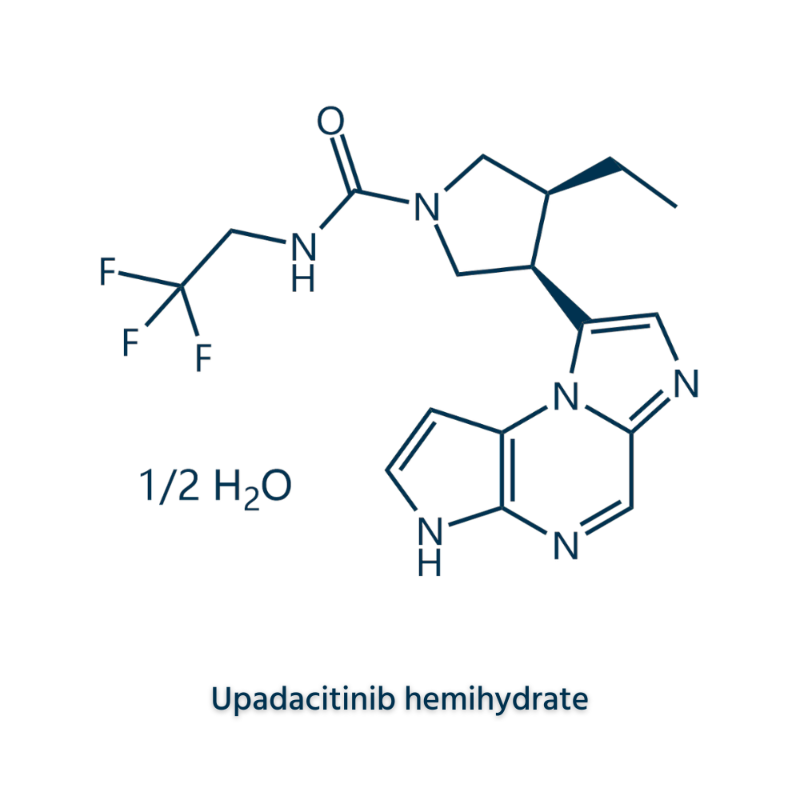-
Categories
-
Pharmaceutical Intermediates
-
Active Pharmaceutical Ingredients
-
Food Additives
- Industrial Coatings
- Agrochemicals
- Dyes and Pigments
- Surfactant
- Flavors and Fragrances
- Chemical Reagents
- Catalyst and Auxiliary
- Natural Products
- Inorganic Chemistry
-
Organic Chemistry
-
Biochemical Engineering
- Analytical Chemistry
-
Cosmetic Ingredient
- Water Treatment Chemical
-
Pharmaceutical Intermediates
Promotion
ECHEMI Mall
Wholesale
Weekly Price
Exhibition
News
-
Trade Service
January 25, 2022 / eMedClub News/--BioInvent and Transgene recently jointly announced in the Journal for ImmunoTherapy of Cancer (JITC) that BioInvent and Transgene have collaborated through the use of Transgene's Invir.
IO™ Preclinical proof-of-concept data for the platform-developed clinical-stage oncolytic virus BT-001
.
This peer-reviewed article demonstrates that their co-developed anti-CTLA-4 antibody clinical-stage product based on Transgene's patented oncolytic viral vector, encoded by BioInvent's proprietary platform, is superior to systemically administered anti-CTLA-4 antibody potential therapeutic benefit
.
Systemically administered anti-CTLA-4 antibodies, such as the approved ipilimumab, have shown excellent clinical efficacy but have also been clinically associated with dose-limiting toxicities
.
The paper, titled "Vectorized Treg-depleting αCTLA-4 elicits antigen cross-presentation and CD8+ T cell immunity to reject 'cold' tumors" provides in vivo evidence in mice that vectorized anti-CTLA-4 antibodies are intratumoral Delivery can improve safety by reducing systemic exposure
.
Efficacy may also be enhanced as vectored anti-CTLA-4 antibodies have anti-tumor activity even in "cold tumors" that are insensitive to systemically delivered checkpoint inhibitors
.
Furthermore, the antibody precisely targets a unique functional epitope of CTLA-4, providing higher levels of regulatory T cell (Treg) depletion than ipilimumab
.
On November 9, 2021, Transgene and BioInvent presented the preclinical data of the oncolytic vaccinia virus BT-001 jointly developed by the two parties at the 36th Annual Meeting of the Society for Cancer Immunotherapy (SITC), which showed strong anti-tumor data active
.
Recommended reading: Oncolytic vaccinia virus equipped with anti-CTLA-4 antibody exhibits strong anti-tumor activity at SITC Levels of CTLA-4 receptor-saturating antibody, but low, subsaturated exposure in blood and non-tumor tissue
.
These antibody levels were associated with high depletion of Tregs in tumors, but not systemic depletion of Tregs, especially in the spleen
.
The study also provides some key insights into possible mechanisms of BT-001 efficacy
.
Vectorized anti-CTLA-4: Triggered Fc receptor-dependent Treg depletion and antigen cross-presentation, mechanisms known to trigger and promote durable systemic CD8+ T cell antitumor immunity
.
Demonstrates broad antitumor activity, including activity in a mouse "cold tumor" model resistant to systemic checkpoint inhibitors
.
Shows additive or synergistic antitumor activity when used in combination with anti-PD-1
.
Bjorn Frendéus, Chief Scientific Officer of BioInvent: "These strong preclinical data support the development of our oncolytic virus BT-001 as an effective drug for the treatment of solid tumors
.
We have vectored a unique targeted anti-CTLA-4 antibody for intratumoral delivery and demonstrated in vivo that this antibody reduces systemic toxicity, addresses the "cold tumor" problem, and provides favorable tumor-selective Tregs missing
.
We eagerly await the progress of the ongoing Phase 1/2a clinical study of BT-001
.
Transgene Chief Scientific Officer Éric Quéméneur added: "These data demonstrate the relevance of the approach, which is based on combining our respective technologies to fully utilize oncolytic vectors, targeted delivery of payloads and recruitment to immunosuppressive cells Synergy between effector T cells
.
The anti-tumor properties shown in this article published in JITC give us great confidence and we look forward to further clinical development results of BT-001
.
Recruitment for the ongoing Phase 1/2a clinical study of BT-001 (NCT04725331) in Europe is progressing steadily
.
The trial evaluates BT-001 as a single agent and in combination with the PD-1 checkpoint inhibitor pembrolizumab in solid tumors
.
Expected Initial Phase 1 data will be released in the first half of 2022.
Novel
oncolytic virus BT-001 based on Invir.
IO™ platform is a novel oncolytic virus, vaccinia virus, designed based on Transgene’s proprietary technology platform Invir.
IO™ It has been engineered to bind to tumor cells and locally produce anti-CTLA-4 antibodies and GM-CSF, while targeting the tumor microenvironment to generate immune responses against tumor cells
.
▲ BT-001 (image Source: Transgene) anti-CTLA-4 antibody and GM-CSF locally accumulate in tumors with low systemic exposure
.
In a xenograft tumor model, after intratumoral injection of BT-001, anti-CTLA-4 antibody in tumors was more than 10-fold higher than after intraperitoneal injection of 3 mg/kg recombinant antibody
.
It can be found in various solid tumor mouse models that the cure rate of BT-001 is over 70%
.
Reimplantation of tumor cells in a mouse model cured after initial BT-001 treatment observed that the mice developed strong tumor-specific responses and durable immune memory
.
It is thought to be useful in preventing tumor recurrence
.
Reference: 1.
https:// -therapeutic-benefit-beyond-current-anti-pd-1-anti-ctla-4-immune-checkpoint-blockade/
IO™ Preclinical proof-of-concept data for the platform-developed clinical-stage oncolytic virus BT-001
.
This peer-reviewed article demonstrates that their co-developed anti-CTLA-4 antibody clinical-stage product based on Transgene's patented oncolytic viral vector, encoded by BioInvent's proprietary platform, is superior to systemically administered anti-CTLA-4 antibody potential therapeutic benefit
.
Systemically administered anti-CTLA-4 antibodies, such as the approved ipilimumab, have shown excellent clinical efficacy but have also been clinically associated with dose-limiting toxicities
.
The paper, titled "Vectorized Treg-depleting αCTLA-4 elicits antigen cross-presentation and CD8+ T cell immunity to reject 'cold' tumors" provides in vivo evidence in mice that vectorized anti-CTLA-4 antibodies are intratumoral Delivery can improve safety by reducing systemic exposure
.
Efficacy may also be enhanced as vectored anti-CTLA-4 antibodies have anti-tumor activity even in "cold tumors" that are insensitive to systemically delivered checkpoint inhibitors
.
Furthermore, the antibody precisely targets a unique functional epitope of CTLA-4, providing higher levels of regulatory T cell (Treg) depletion than ipilimumab
.
On November 9, 2021, Transgene and BioInvent presented the preclinical data of the oncolytic vaccinia virus BT-001 jointly developed by the two parties at the 36th Annual Meeting of the Society for Cancer Immunotherapy (SITC), which showed strong anti-tumor data active
.
Recommended reading: Oncolytic vaccinia virus equipped with anti-CTLA-4 antibody exhibits strong anti-tumor activity at SITC Levels of CTLA-4 receptor-saturating antibody, but low, subsaturated exposure in blood and non-tumor tissue
.
These antibody levels were associated with high depletion of Tregs in tumors, but not systemic depletion of Tregs, especially in the spleen
.
The study also provides some key insights into possible mechanisms of BT-001 efficacy
.
Vectorized anti-CTLA-4: Triggered Fc receptor-dependent Treg depletion and antigen cross-presentation, mechanisms known to trigger and promote durable systemic CD8+ T cell antitumor immunity
.
Demonstrates broad antitumor activity, including activity in a mouse "cold tumor" model resistant to systemic checkpoint inhibitors
.
Shows additive or synergistic antitumor activity when used in combination with anti-PD-1
.
Bjorn Frendéus, Chief Scientific Officer of BioInvent: "These strong preclinical data support the development of our oncolytic virus BT-001 as an effective drug for the treatment of solid tumors
.
We have vectored a unique targeted anti-CTLA-4 antibody for intratumoral delivery and demonstrated in vivo that this antibody reduces systemic toxicity, addresses the "cold tumor" problem, and provides favorable tumor-selective Tregs missing
.
We eagerly await the progress of the ongoing Phase 1/2a clinical study of BT-001
.
Transgene Chief Scientific Officer Éric Quéméneur added: "These data demonstrate the relevance of the approach, which is based on combining our respective technologies to fully utilize oncolytic vectors, targeted delivery of payloads and recruitment to immunosuppressive cells Synergy between effector T cells
.
The anti-tumor properties shown in this article published in JITC give us great confidence and we look forward to further clinical development results of BT-001
.
Recruitment for the ongoing Phase 1/2a clinical study of BT-001 (NCT04725331) in Europe is progressing steadily
.
The trial evaluates BT-001 as a single agent and in combination with the PD-1 checkpoint inhibitor pembrolizumab in solid tumors
.
Expected Initial Phase 1 data will be released in the first half of 2022.
Novel
oncolytic virus BT-001 based on Invir.
IO™ platform is a novel oncolytic virus, vaccinia virus, designed based on Transgene’s proprietary technology platform Invir.
IO™ It has been engineered to bind to tumor cells and locally produce anti-CTLA-4 antibodies and GM-CSF, while targeting the tumor microenvironment to generate immune responses against tumor cells
.
▲ BT-001 (image Source: Transgene) anti-CTLA-4 antibody and GM-CSF locally accumulate in tumors with low systemic exposure
.
In a xenograft tumor model, after intratumoral injection of BT-001, anti-CTLA-4 antibody in tumors was more than 10-fold higher than after intraperitoneal injection of 3 mg/kg recombinant antibody
.
It can be found in various solid tumor mouse models that the cure rate of BT-001 is over 70%
.
Reimplantation of tumor cells in a mouse model cured after initial BT-001 treatment observed that the mice developed strong tumor-specific responses and durable immune memory
.
It is thought to be useful in preventing tumor recurrence
.
Reference: 1.
https:// -therapeutic-benefit-beyond-current-anti-pd-1-anti-ctla-4-immune-checkpoint-blockade/







